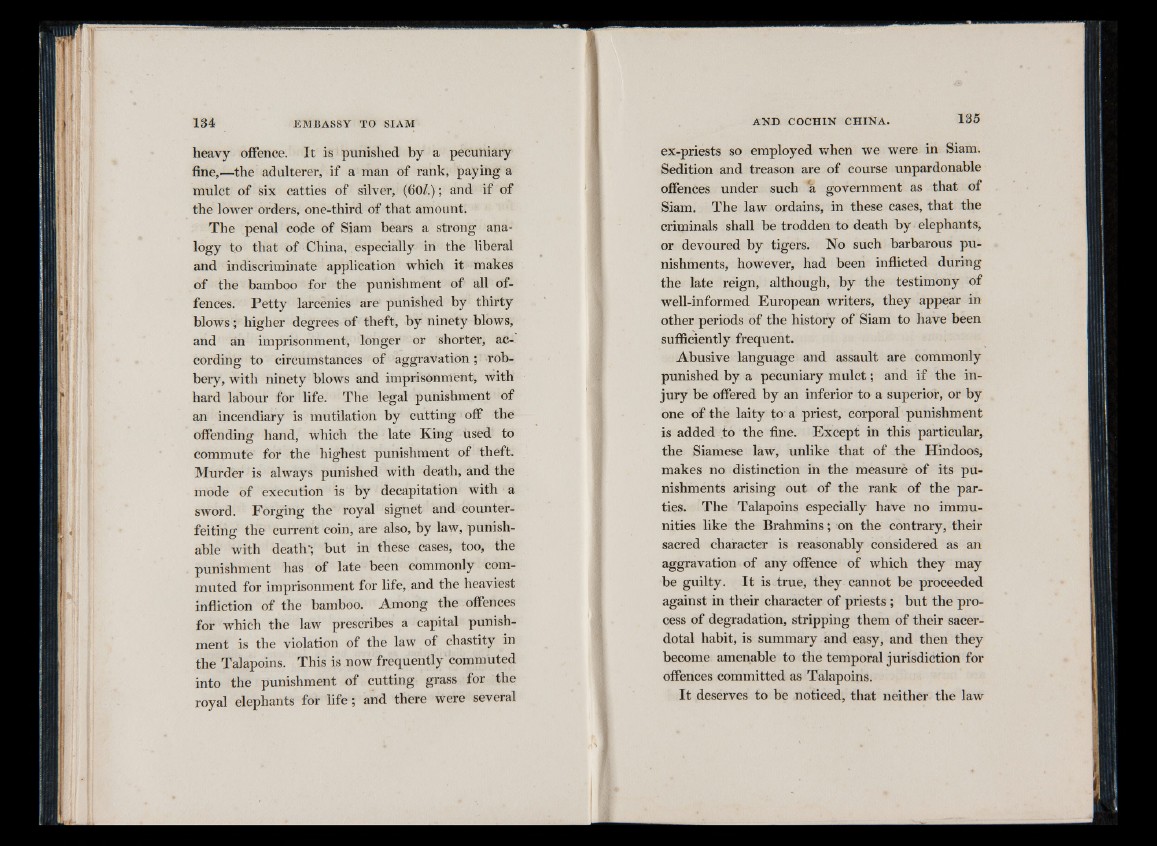
heavy offence. I t is punished by a pecuniary
fine,—the adulterer, if a man of rank, paying a
mulct of six catties of silver, (60/.) f and if of
the lower orders, one-third of that amount.
The penal code of Siam bears a strong analogy
to that of China, especially in the liberal
and indiscriminate application which it makes
of the bamboo for the punishment of all offences.
Petty larcenies are punished by thirty
blows; higher degrees of theft, by ninety blows,
and an imprisonment, longer or shorter, according
to circumstances of aggravation; robbery,
with ninety blows and imprisonment, with
hard labour for life. The legal punishment of
an incendiary is mutilation by cutting off the
offending hand, which the late King used to
commute for the highest punishment of theft.
Murder is always punished with death, and the
mode of execution is by decapitation with a
sword. Forging the royal signet and counterfeiting
the current coin, are also, by law, punishable
with death'; but in these cases, too, the
punishment has of late been commonly commuted
for imprisonment for life, and the heaviest
infliction of the bamboo. Among the offences
for which the law prescribes a capital punishment
is the violation of the law of chastity in
the Talapoins. This is now frequently commuted
into the punishment of cutting grass for the
royal elephants for life ; and there were several
ex-priests so employed when we were in Siam.
Sedition and treason are of course unpardonable
offences under such a government as that of
Siam. The law ordains, in these cases, that the
criminals shall be trodden to death by elephants,
or devoured by tigers. No such barbarous punishments,
however, had been inflicted during
the late reign, although, by the testimony of
well-informed European writers, they appear in
other periods of the history of Siam to have been
sufficiently frequent.
Abusive language and assault are commonly
punished by a pecuniary m u lc t; and if the injury
be offered by an inferior to a superior, or by
one of the laity to a priest, corporal punishment
is added to the fine. Except in this particular,
the Siamese law, unlike that of the Hindoos,
makes no distinction in the measure of its punishments
arising out of the rank of the parties.
The Talapoins especially have no immunities
like the Brahmins; on the contrary, their
sacred character is reasonably considered as an
aggravation of any offence of which they may
be guilty. I t is true, they cannot be proceeded
against in their character of priests ; but the process
of degradation, stripping them of their sacerdotal
habit, is summary and easy, and then they
become amenable to the temporal jurisdiction for
offences committed as Talapoins.
I t deserves to be noticed, that neither the law